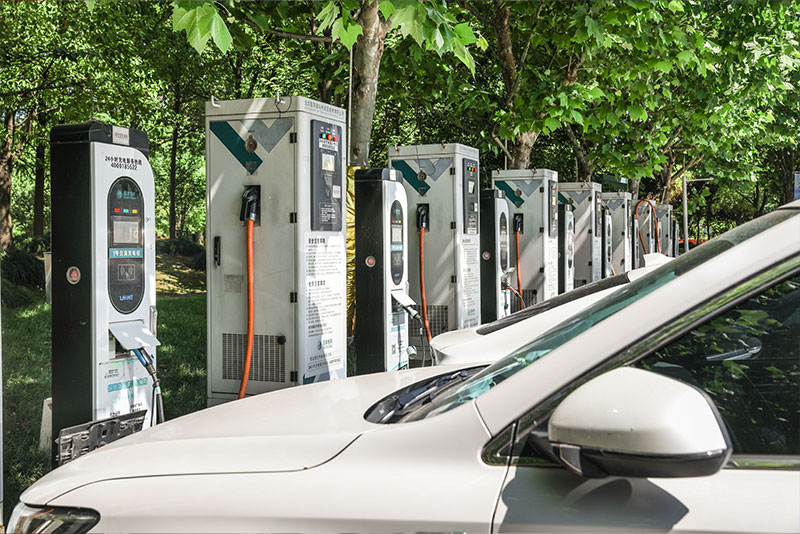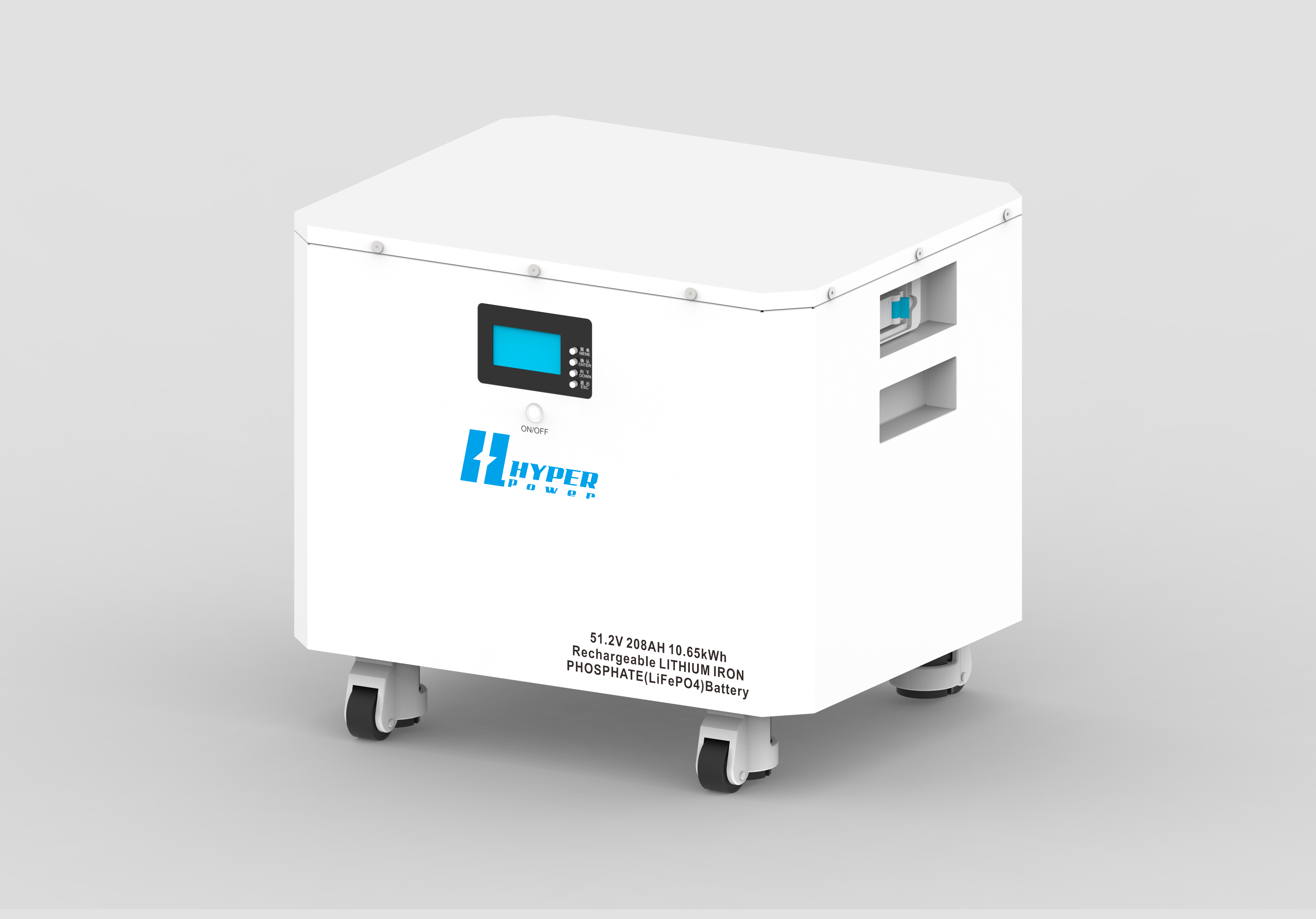Unlocking the Potential of Commercial Solar Battery Storage Systems
Explore the various aspects of commercial solar battery storage systems, including their benefits, installation process, cost considerations, and their role in the future of sustainable energy solutions.
Introduction
The growing emphasis on sustainability and reducing carbon footprints has led businesses across the world to adopt renewable energy solutions. Among these, solar energy stands out as one of the most accessible and cost-effective options. However, a key challenge for businesses using solar power is managing energy consumption when the sun isn't shining. This is where commercial solar battery storage comes into play. These systems enable businesses to store excess solar energy generated during the day for use at night or during periods of low sunlight, ensuring continuous energy supply and reducing reliance on the grid.
In this comprehensive guide, we will explore the various aspects of commercial solar battery storage systems, including their benefits, installation process, cost considerations, and their role in the future of sustainable energy solutions.

What is Commercial Solar Battery Storage?
Commercial solar battery storage refers to systems that are designed to store excess electricity generated by solar panels in batteries for later use. These systems are typically larger and more powerful than residential solar battery solutions, and they are engineered to meet the high energy demands of businesses.
The idea is simple: solar energy is harnessed by photovoltaic panels during the day, but businesses often need energy even after the sun sets. Commercial solar battery storage systems allow businesses to store this excess energy, which can then be drawn upon during peak demand periods or when the solar panels are not generating enough power.
There are several types of batteries used in commercial solar storage systems, including lithium-ion batteries, lead-acid batteries, and newer technologies such as solid-state batteries. The choice of battery depends on factors such as the business's energy needs, budget, and desired system lifespan.
Why Should Businesses Invest in Commercial Solar Battery Storage?
Energy Independence
One of the primary advantages of commercial solar battery storage is energy independence. By storing solar energy, businesses can reduce their reliance on the grid, especially during times when electricity costs are high or the grid is experiencing instability.
For companies located in areas with frequent power outages or unreliable grids, solar battery storage can be a game-changer, ensuring continuous operations without interruptions.
Cost Savings
Electricity prices have been rising steadily, and businesses often face substantial energy bills. With solar battery storage, companies can store energy when electricity rates are low and use it when rates are high. This practice, known as "demand charge management," helps businesses avoid peak electricity rates and reduce overall energy costs.
Additionally, many commercial solar battery storage systems allow businesses to sell excess energy back to the grid, generating additional revenue and further reducing the cost of their solar investment.
Environmental Impact
By incorporating solar battery storage into their energy strategy, businesses can reduce their carbon footprints significantly. Solar energy is clean, renewable, and sustainable. Using battery storage maximizes the environmental benefits of solar power by ensuring that businesses can rely on solar energy during the night or on cloudy days, reducing the need for fossil fuels.
Grid Stability and Support
Commercial solar battery storage systems can also help support the grid during times of high demand. By storing energy and discharging it back into the grid when needed, businesses can help stabilize the grid, prevent blackouts, and contribute to a more resilient energy system.
Incentives and Tax Benefits
Many governments and local authorities offer financial incentives to businesses that invest in renewable energy solutions. These incentives can come in the form of tax credits, rebates, or grants. For example, the U.S. offers the Federal Investment Tax Credit (ITC), which allows businesses to deduct up to 26% of the cost of their solar installation, including battery storage, from their federal taxes.
How Do Commercial Solar Battery Storage Systems Work?
Commercial solar battery storage systems work by storing excess solar energy during daylight hours and releasing it during periods of low sunlight or at night. The process involves several components working in sync:
- Solar Panels: These are responsible for capturing sunlight and converting it into electricity through the photovoltaic effect. The energy generated is either used immediately or stored for later use.
- Inverter: This device converts the DC (direct current) electricity produced by solar panels into AC (alternating current), which is used to power appliances and machinery in the business. Some systems also include a hybrid inverter that manages both solar energy conversion and battery charging.
- Battery Storage: Once the energy is converted, any excess energy that isn't immediately needed is stored in the batteries for future use. The storage capacity of the battery determines how much energy can be stored and for how long it can power the business.
- Energy Management System (EMS): This system monitors the energy usage of the business, the solar panel output, and the battery charge levels. It ensures that energy is distributed efficiently and that the battery is charged when there is excess solar power available.
Factors to Consider When Choosing a Commercial Solar Battery Storage System
Energy Requirements
The first step in choosing a commercial solar battery storage system is to determine the energy needs of the business. A thorough energy audit can help assess how much power is consumed on a daily basis, the peak usage times, and the desired level of backup energy. The storage system must be capable of meeting the energy demands during non-sunny hours or during grid outages.
Battery Capacity
The capacity of the battery is critical in determining how much energy can be stored. Battery capacity is typically measured in kilowatt-hours (kWh). Businesses with higher energy consumption will require larger capacity batteries to meet their needs. The capacity should also take into account the length of time the business needs to rely on stored energy.
Battery Lifespan
Different types of batteries have varying lifespans. For instance, lithium-ion batteries typically last between 10 to 15 years, while lead-acid batteries have a shorter lifespan, usually around 5 to 7 years. The lifespan of the battery affects the long-term cost-effectiveness of the system.
Cost of the System
The initial installation cost of commercial solar battery storage systems can be significant. However, the long-term savings in energy costs, combined with government incentives and tax credits, can make the investment worthwhile. Businesses should carefully evaluate the total cost of the system, including installation, maintenance, and the projected return on investment.
Scalability
As businesses grow and their energy needs increase, it’s important to choose a system that can be easily scaled up. Many commercial solar battery systems are modular, meaning that additional batteries can be added as needed without requiring a complete system overhaul.
Installation Process
The installation of commercial solar battery storage systems typically follows these steps:
- Site Assessment: A professional installer will conduct a site survey to determine the most suitable location for the solar panels, inverters, and batteries. The amount of sunlight the site receives, as well as the available space for installation, will be key considerations.
- System Design: Based on the site assessment, a custom solar battery storage system will be designed to meet the specific energy needs of the business. This design will consider the types of batteries, inverters, and other components required.
- Installation: The solar panels, inverter, and battery storage system are then installed by certified professionals. The installation process can take anywhere from a few days to a few weeks, depending on the size and complexity of the system.
- Testing and Commissioning: After installation, the system is tested to ensure that it is functioning properly. The batteries are charged, and the system is tested under real-world conditions to ensure that it can meet the business’s energy needs.
- Ongoing Maintenance: Regular maintenance is necessary to ensure the optimal performance of the system. This includes monitoring the battery health, cleaning the panels, and updating software if necessary.

Cost Considerations for Commercial Solar Battery Storage
The upfront cost of installing commercial solar battery storage systems can vary widely depending on several factors, including the size of the system, the type of battery used, and the specific energy needs of the business.
While the initial investment can be substantial, the return on investment (ROI) is typically seen within a few years due to the significant savings in energy costs. Businesses can also offset costs through available financial incentives, rebates, and tax credits.
Additionally, as battery technology continues to improve, the cost of solar battery storage is expected to decrease, making it more accessible to businesses of all sizes.
Conclusion
Commercial solar battery storage systems are an essential component of any business’s strategy to reduce energy costs, enhance sustainability, and ensure a reliable energy supply. By harnessing the power of solar energy and storing it for later use, businesses can achieve greater energy independence, lower operating costs, and contribute to a greener future.
With advancements in technology and favorable government incentives, investing in commercial solar battery storage is becoming an increasingly attractive option for businesses. As the world shifts towards renewable energy, solar battery storage offers businesses the opportunity to stay ahead of the curve while reaping significant financial and environmental rewards.
Blog

A Comprehensive Guide to Solar Battery Energy Storage Systems

The Ultimate Guide to Lithium-Ion Battery Banks for Home Energy Storage

Unlocking the Potential of Commercial Solar Battery Storage Systems
-Charging.png)


.jpg)

























